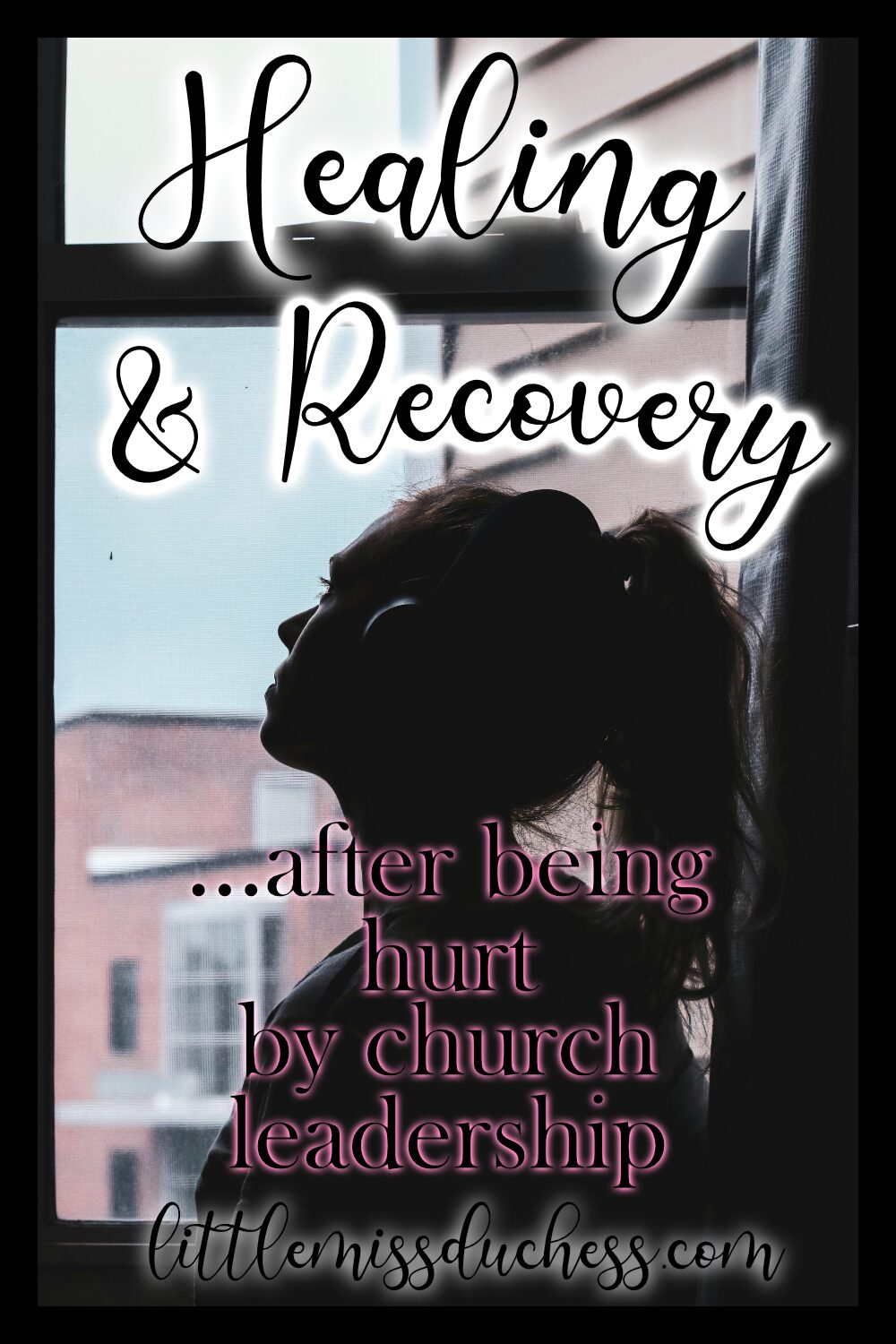
Healing and Recovery After Being Hurt by Church Leadership
Table of Contents
Introduction
The church is often seen as a sanctuary, a place where individuals seek refuge, support, and spiritual growth. However, there are times when the very leaders entrusted with guiding their congregation may cause deep wounds. This can be particularly devastating when a pastor or other church leader spreads rumors and lies or even when a senior pastor lies about someone who has experienced abuse or harrassment during a sermon. Such betrayal can leave the victim feeling isolated, broken, and questioning their faith. This blog post will explore how people can recover and heal after such painful experiences, providing detailed steps to help navigate through the process.
The Impact of Betrayal by Church Leadership
Emotional and Spiritual Consequences
When a pastor spreads rumors and lies about about a church member, the emotional and spiritual impact can be profound. The victim may experience a wide range of emotions, including:
- Shock and Disbelief: They naturally may feel stunned when someone that they have trusted betrays them.
- Anger and Resentment: Anger towards the individual who wronged them and resentment towards the institution can arise.
- Shame and Humiliation: Public rumors can lead to feelings of shame, especially in a close-knit community.
- Spiritual Confusion: The victim’s faith may be shaken, leading to questions about their beliefs and even their trust in God.
The Case of Assault and Public Slander
Consider the situation where someone undergoes a severe case of harrassment and then a highly ranked senior pastor lies about the victim during a sermon. This not only adds to the trauma of the harrassment but also amplifies the victim’s suffering through public defamation. The repercussions include:
- Emotional Trauma: The initial assault leaves emotional scars, which are deepened by the betrayal.
- Social Isolation: False accusations can lead to ostracization from the church community.
- Loss of Trust: Trust in church leadership and the institution as a whole can be severely damaged.
Steps to Recover and Heal from Such Betrayal
1. Acknowledge The Pain
The first step in healing is to acknowledge the pain and betrayal that you have experienced. Denying or minimizing these feelings can impede the healing process.
- Journal Your Feelings: Writing about your emotions can help you process the trauma.
- Seek a Safe Space to Talk: Find a trusted friend, family member, or counselor who can provide a listening ear.

2. Seek Professional Help
Professional counseling or therapy can be incredibly beneficial in dealing with the emotional and psychological fallout from such experiences.
- Therapists Specializing in Trauma: Look for therapists who specialize in trauma and abuse, particularly those with experience in spiritual or religious abuse.
- Support Groups: Join support groups for individuals who have experienced similar betrayals. Shared experiences can foster a sense of community and understanding.

3. Set Boundaries
Establishing boundaries is crucial in protecting yourself from further harm and beginning the healing process.
- Limit Contact: Minimize or eliminate contact with the individuals who have caused you harm.
- Create Safe Spaces: Ensure that you have safe environments where you feel secure and supported.
4. Rebuild Your Faith
Rebuilding your faith can be a delicate process. It’s important to separate your personal beliefs from the actions of individuals who have misrepresented those beliefs.
- Personal Spiritual Practices: Engage in personal spiritual practices such as prayer, journalling (as mentioned) and reading religious books and bible verses that bring you comfort.
- Seek Alternative Godly Guidance: Consider finding a new church community or leader who aligns with your values and offers genuine support.
5. Forgiveness and Letting Go
- Understand Forgiveness: Forgiveness is about releasing your own burden of anger and resentment, not condoning the actions of the person who hurt you.
- Practice Compassion: Try to understand that those who hurt you may have their own unresolved issues. This doesn’t excuse their behavior but can help you let go of some of the anger.
6. Legal and Organizational Recourse
In cases of assault or severe defamation, taking legal action or addressing the issue within the church’s organizational structure may be necessary.
- Legal Advice: Consult with a lawyer to understand your rights and the potential for legal recourse.
- Church Accountability: If you feel safe doing so, report the incident to higher authorities within the church or relevant oversight bodies.
Detailed Steps to Recover from Betrayal
Step 1: Self-Care and Stabilization
Immediately after the betrayal, focus on stabilizing your emotions and taking care of your physical health.
- Ensure Physical Safety: If the situation involves physical harm, ensure that you are in a safe place.
- Rest and Nourishment: Pay attention to your physical needs by getting adequate rest, eating healthy meals, and engaging in gentle physical activities like walking or pilates.

Step 2: Emotional Processing
Allow yourself to fully experience and process your emotions.
- Express Your Feelings: Use creative outlets such as writing, art, or music to express your emotions.
- Therapeutic Techniques: Engage in therapeutic techniques such as mindfulness, meditation, or cognitive-behavioral therapy (CBT) to help manage your emotional responses.
Step 3: Reconnect with Supportive Relationships
Isolation can worsen the impact of betrayal. Reconnect with people who offer genuine support.
- Trusted Friends and Family: Lean on friends and family members who understand and support you.
- New Communities: Consider joining new groups or communities where you can find acceptance and understanding.
Step 4: Reevaluate Your Relationship with the Church
It’s important to critically evaluate your relationship with the church and make decisions that are best for your well-being.
- Take a Break: If necessary, take a temporary break from church activities to give yourself space to heal.
- Find a New Congregation: If your current church environment is too toxic, look for a new congregation where you feel safe and valued.
Step 5: Develop a Personal Healing Plan
Create a structured plan to guide your healing process.
- Set Realistic Goals: Define small, achievable goals for your emotional and spiritual recovery.
- Track Your Progress: Keep a journal or diary to track your healing journey, noting any progress and setbacks.

Step 6: Advocacy and Awareness
Use your experience to help others and raise awareness about the issue of abuse and betrayal within religious settings.
- Share Your Story: If and when you feel ready, share your story to help others who might be going through similar experiences.
- Get Involved in Advocacy: Join organizations or movements that work towards preventing abuse and supporting victims in religious contexts.
Conclusion
Being hurt by someone in church leadership is a deeply painful experience that can leave lasting scars. However, it’s possible to heal and find emotional recovery through acknowledging your pain, seeking professional help, setting boundaries, rebuilding your faith, and taking legal or organizational recourse if necessary. Remember that healing is a journey and it’s okay to take it one step at a time. By taking proactive steps and seeking support, you can regain your strength, rebuild your trust, and find peace and healing.

